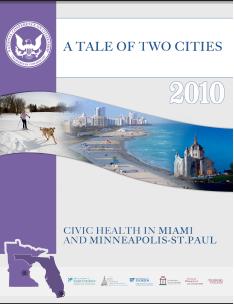Democracy and optimal policymaking – a few signposts
This is a bit of a rehearsal of the ‘what is a good government – and is it democratic? question. It’s also more of a set of bookmarks than a proper post, but I hope someone finds it useful.
I think we would all like to find ourselves in a situation where the public – by voting – get a government that delivers The General Will – and that, by this, we understand that it does it efficiently as well.
If someone could demonstrate that we could have this without votes or public participation, we’d have to face a tough question: Do we actually want a democracy at all?
So, for example, take the notion of The General Will. As an example, lets take something that the public have a settled preference on. For example, lets say (for the sake of argument) that we want everybody to be able to have access to, and the ability participate in, a particular activity – no matter what their social or ethnic status may be. This will not just require rules to prevent discrimination – it will also require society to be organised in such a way as to make it possible for someone to provide such a service.
The example that springs to mind is that of a golf club.
The character of local government
It’s Friday. It’s 3.30pm. It’s time for
a nice entertaining post about the character of local government.
Oh! Here’s one – on a blog that’s generally worth keeping an eye on.
Along with the Glum Councillors tumblog, we’re seeing the culture of local government being ever-so-slightly lightened and humanised by the blogosphere.
On democracy, environment and the Red Tape Challenge
 April 7th 2011 was a dark day both for the Coalition government’s commitment to be the ‘greenest government ever’, and for democracy in the UK. That was the day that the government launched its Red Tape Challenge.
April 7th 2011 was a dark day both for the Coalition government’s commitment to be the ‘greenest government ever’, and for democracy in the UK. That was the day that the government launched its Red Tape Challenge.
The idea of cutting red tape has a long and undistinguished history in the UK; undistinguished in that it is never a job that anyone has said is done.
Under Conservative Prime Minister John Major in the mid-1990s, there was a ‘deregulation unit’. Major memorably described tackling red tape as like trying to wrestle with a greasy pig.
Across governments, the idea of slashing red tape never went out of fashion. Under Tony Blair, New Labour established a ‘red tape task force’. And Gordon Brown claimed to be the ‘enemy of red tape’. Read the rest of this entry »
Mulling over a ‘right to manage’
Wonderful pop-up social enterprise thinktank Popse (possibly the first pop-up thinktank ever, but certainly not the last) popped up in London’s Exmouth Market from 9-13 May.
Among other hot topics was a proposal from the Waterways Project that a community ‘right to manage’ (or a ‘presumption in favour of community management’) should join the existing proposals in the Localism Bill. Read the rest of this entry »
House of Lords Reform, Long-termism and Future Generations
 The House of Lords Reform Draft Bill and accompanying White Paper were presented to Parliament by Deputy Prime Minister Nick Clegg on Tuesday 17 May.
The House of Lords Reform Draft Bill and accompanying White Paper were presented to Parliament by Deputy Prime Minister Nick Clegg on Tuesday 17 May.
The documents set out long-awaited options for a reformed House of Lords.
The Bill is grounded in a smaller, 80%-elected House, retaining (controversially) the Bishops. The White Paper indicates that a 100% elected upper House has not been ruled out.
One striking feature of the proposals is that they have nothing at all to say about the functions of Westminster’s upper house. In fact, the White Paper’s summary of the proposals states that “[t]he reformed House of Lords would have the same functions as the current House. It would continue to scrutinise legislation, hold the Government to account and conduct investigations.”
So the proposed changes would be in form, not in substance. Read the rest of this entry »
Why 'Microparticipation' is so important
My friend Mick Phythian picked up a very useful motto/warning for anyone promoting e-government projects a while ago. To government, your time is worth £Zero – and this is why e-government fails.
This explains why a very sharp idea that Dave Briggs has been working on recently – promoting the notion of ‘Microparticipation’ with a dedicated idea-site here – is so important.
We are, after all, being gently forced to comply with other people’s procedures where it is in their interest to invest in this compulsion (or ‘nudging’ as it is gently put).
This is the whole trajectory of the World Wide Web – from the first release of HTML scripts and early browsers in the early 1990s, through the progressive development of website coding and site-building tools, the burgeoning science of Accessibility, Usability and the ‘Semantic Web’ through to the aggressive mainstreaming that it has undergone in recent years as social media has dragged billions of people into compliance with the web. Social media is a conspiracy to dovetail all of our economic activity with the processes of the organisations that invest in online applications. Read the rest of this entry »
UK Campaign for a Stronger Democracy?
 I’ve been catching up on the podcasts from Radio 4’s ‘From Our Own Correspondent’ – always a pleasure – and I noticed that the last two programmes both had a life’s like this reportage piece from France talking about apartment living and the sort-of communal spirit that it engenders and one on the more whimsical healthcare treatments (and related anecdotes about the powerful local health lobbies) that the French state will fund. Read the rest of this entry »
I’ve been catching up on the podcasts from Radio 4’s ‘From Our Own Correspondent’ – always a pleasure – and I noticed that the last two programmes both had a life’s like this reportage piece from France talking about apartment living and the sort-of communal spirit that it engenders and one on the more whimsical healthcare treatments (and related anecdotes about the powerful local health lobbies) that the French state will fund. Read the rest of this entry »
AV: Yes, No or Meh? What does the debate look like
 I don’t know about you, but I find the outcome of the AV referendum less interesting than the fact that we’re being asked about voting systems at all.
I don’t know about you, but I find the outcome of the AV referendum less interesting than the fact that we’re being asked about voting systems at all.
Like everyone else, I’ve got my own prejudices here – I particularly dislike the fact that it’s a question that is subject to a referendum in the first place – a strong enough reason to resist the change itself, perhaps?
I don’t know whether to vote Yes, No or just say ‘meh‘ and stay indoors. But I think that there are some bigger important questions lurking in a squabble over a minor change, and I’d like to help pull together a catalogue of the various arguments to see if that will help the undecideds to make their mind up. Read the rest of this entry »
Miami & Minneapolis-St Paul: contrasting results but the same issues?
 This study – featured (and partly written) by Peter Levine illustrates the way that different civic cultures can promote and legitimise civic engagement in different – and better ways. It seems fairly clear that Minneapolis-St Paul is a much better place to live in this respect:
This study – featured (and partly written) by Peter Levine illustrates the way that different civic cultures can promote and legitimise civic engagement in different – and better ways. It seems fairly clear that Minneapolis-St Paul is a much better place to live in this respect:
“In both communities (as elsewhere in the United States), people with more education and income tend to engage more in civic affairs. But individuals in Minneapolis-St. Paul who are in the lowest income group are more likely to volunteer, buy viagra online attend public meetings, work with neighbors, participate in politics outside of elections, and participate in associations than are people in the wealthiest tier in Miami. An individual with a high school education in Minneapolis-St. Paul is about as likely to be engaged as an individual with a college education in Miami.”
For me, it does raise the point
that a positional look at engagement is important. In many ways, surely a relatively low disparity between the involvement of different demographic segments is as (more?) important than a high level of engagement in itself? After all, a highly engaged and vibrant democracy in which the bottom 25% of the social ladder isn’t involved at all has a fair few parallels with a slave-owning society…
The next ballot in San Francisco could prove to be a bit of a close shave…
… so to speak. According to the Huffington Post,
California’s direct democracy fetish is stepping into new areas viagra tablets including the practice of infant circumcision for religious purposes.
It brings up a number of interesting issues. On the one hand, it raises questions for libertarians – often the most vocal advocates of more direct democracy. The Huffington Post quotes one Heather Wisnicky saying:
It’s your choice, it’s your child…government can’t rule us on everything we do,”
So there’s the oppression of minorities argument for starters. It also addresses some wider issues around family law – the secularist argument that our children must choose their religion for themselves. On balance, I’d probably agree with that one, but we have to ask where it will end. Read the rest of this entry »


